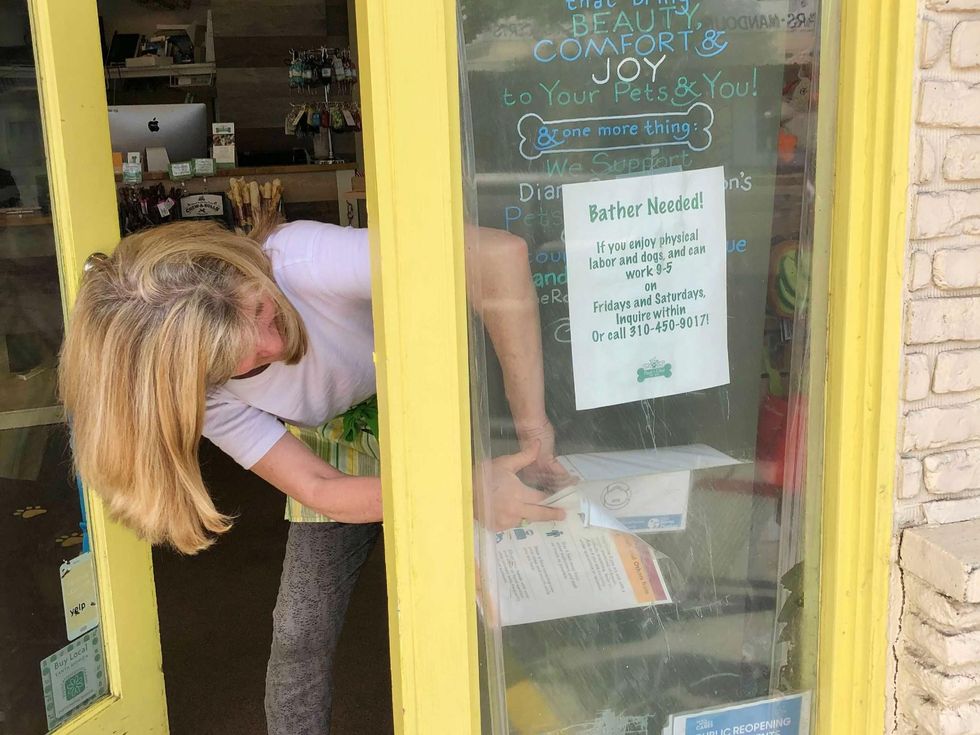I’m watching DJ Calvin Harris appear in avatar-form on a six-inch phone screen propped up against my laptop screen on my desk. In a weak attempt to foster the correct vibe for a virtual EDM show, I turned off all the other lights in my room, leaving only my two screens to set the room aglow. Still, rave vibes are difficult to reproduce considering it’s Friday at noon and I’m strictly under the influence of three cups of coffee.
Swiveling in my desk chair as an animated Harris begins to turn digital discs, I settle in for what promises to be, for me, a new experience. The TikTok LIVE concert, courtesy of the virtual entertainment company Wave, isn’t the first time TikTok has hosted an VR event. In 2020, the video-sharing app hosted The Weeknd in a virtual, livestreamed concert. Not to mention, that in the early days of the pandemic, a number of virtual concert startups thrived, with companies like Wave bringing artists like John Legend and Tinashe to the digital stage. But the return of live concerts hasn’t killed their online alternative—just last year, MTV introduced a Metaverse performance category at the Video Music Awards.
Technically, Harris’ show was conceived as a VR concert. People with a headset from Pico, a VR company owned by TikTok’s parent company Bytedance only available in Europe and Asia, could see an immersive digital experience. For the rest of us though it was just our six-inch OLED screens.
Harris opened the show with his remix “C.U.B.A / You've Got the Love.” His avatar, which inexplicably had glowing yellow eyes, never strayed from the virtual booth. Occasionally, it would raise its arms or clap, but that was the extent of the avatar’s physical movements. Perhaps these moves work on a real stage, but in the Metaverse they are the visual equivalent of elevator music.
The crowd, which was situated in a circle around the booth, was slightly more enthusiastic. People—users tuning in from the Pico headsets—were depicted as figures with teardrop-shaped heads and long oval bodies. But without legs, the virtual audience just floated around while waving their skinny arms. As their hands moved, lines of neon lights trailed behind them in an obvious attempt to recreate the glow-in-the-dark vibe at most traditional EDM shows. Its clear that they were the prioritized viewers—in the middle of the song“Giant,” Harris started shouting out people’s usernames.
On TikTok, the action was all in the comments section. Some examples included:
“So lit.”
“save ukraine”
“super cringe”
“Rave bae where you at”
And my personal favorite, “calvin harris is probably in sweats with a bag of cheetos next to him.”
When Harris requested everyone put their hands in the air during the middle of “Blame,” TikTok viewers responded by flooding the comments with a variety of hand emojis. The comments section also revealed some confusion over the livestream’s general concept. As Harris performed “Outside,” one user commented “PLZ WHAT IS THIS.” Similar comments popped up throughout the stream, with TikTok viewers wondering how they could enter the virtual crowd and if this was a Roblox event.
The confusion was also evident by viewership—a livestream that started with 15,000 viewers had dropped to 11,000 viewers by the end of the 40-minute set.
Part of that drop in viewership may have been due to the low-quality of the stream. I can’t speak to the VR experience, but people viewing from TikTok saw highly-pixelated, blurry graphics. Even if the effects had been sharp, it was clear there was no clear aesthetic for the show: On multiple occasions, the background had random fish or dolphins floating above the crowd. At times, Harris’ avatar would be encompassed by sparkles.
In some ways, it makes sense for EDM to venture into this landscape—the genre is by definition the intersection of technology and music. But, for many EDM fans, half of the appeal is in the community aspect of the genre. People love the outfits and the dancing just as much as they love the music. To separate these features likely makes the set less appealing to anyone who isn’t a die-hard Harris fan.
But maybe I was the problem. Perhaps if I’d fully committed to dressing up and dancing around my bedroom, it would have been easier to immerse myself in the show. But watching the set in sweatpants in my room on a Friday afternoon wasn’t exactly what most people have in mind when they think “rave.”
Harris wrapped the set with fan-favorite “Promises.” Two large hands moved around him behind the DJ booth as his avatar invited the virtual audience to join him on stage. Like Casper the Friendly Ghost, the floating bodies migrated their way over to him. Green and blue lights followed as the avatars bopped around Harris's.
It was an anticlimactic end to a tedious set. But, for some viewers, it succeeded at least in setting the tone of the night. “Now i want to go to a party tonight,” one user commented. I sincerely hope they get there.
- In Spite of the Controversy, Yeezy Stands On Top Of GOAT’s Most Wanted List ›
- AmazeVR Wants You To Attend K-Pop Concerts Virtually ›
- Snap Teams With Universal to Stream Its First Virtual Concert, Starring J.Lo ›
- Megan Thee Stallion Launches ‘First-Ever’ Virtual Reality Concert Tour ›


 Sharon Town Lee ripped off a cluster of laminated public health flyers from the front window of her pet grooming salon in Santa Monica.Photo by Francesca Billington
Sharon Town Lee ripped off a cluster of laminated public health flyers from the front window of her pet grooming salon in Santa Monica.Photo by Francesca Billington